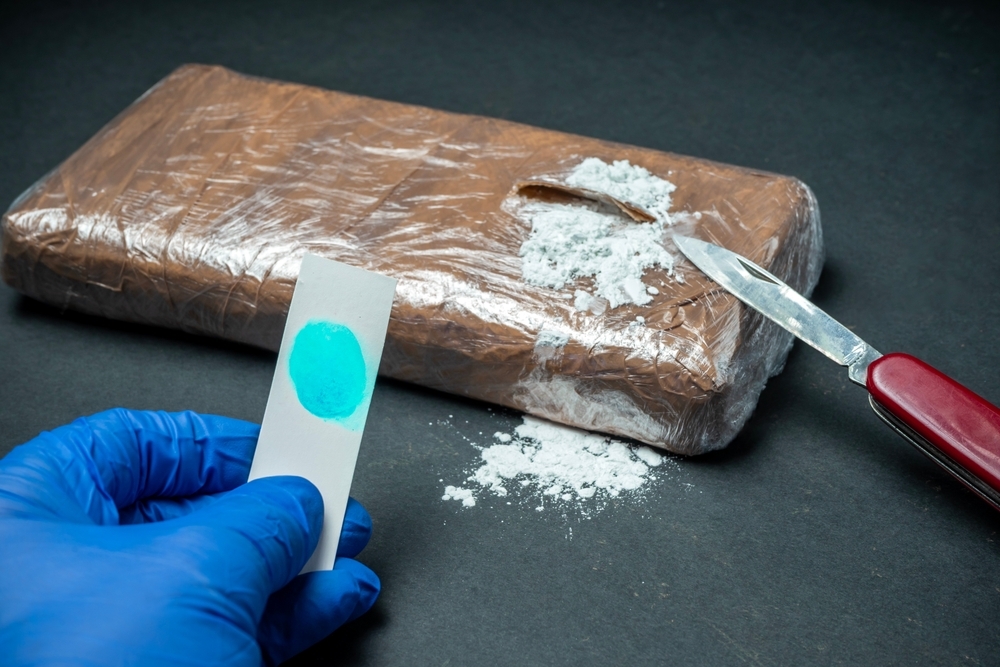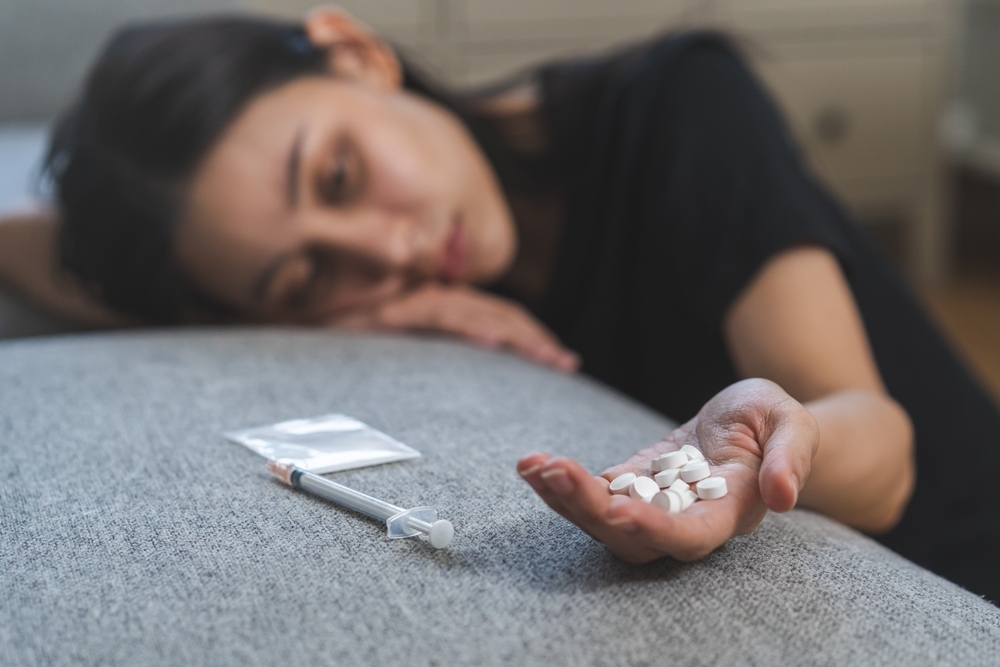Last Updated:
April 8th, 2025
For those struggling with addiction, the availability of drugs is a critical factor in keeping their habit alive. But who are the people supplying them? What can drive someone to sell drugs to a person already trapped in a cycle of dependence?
This article explores the key reasons why people engage in drug dealing, uncovering the financial, social and psychological factors that keep the illicit drug trade alive.
What are the motivations of a drug dealer?
The reasons behind drug dealing are often highly complex and varied. A person may have turned to selling drugs to ease financial hardships, while another person may be from a deeply affluent background and be drawn to a lifestyle of power and status.
Here are some of the main contributors that can motivate a person to sell illicit substances:
The sole purpose of profit
In the pursuit of understanding the primary drivers of drug sales, financial gain may rightfully be assumed as holding the most sway. The illicit drug market in the UK has an estimated worth of £9.4 billion, a number which drug dealers strive to earn their largest slice from. A drug dealer may have feelings of hesitation or guilt when selling to someone in a desperate situation, yet greed can outweigh the feeling and turn a drug seller’s heart to stone.
While it is not simple to measure how much “greed” directly drives a drug dealer, the allure of making exorbitant sums of money undoubtedly keeps street-level peddlers and high-level kingpins motivated. The destructive nature of greed can make a drug dealer disregard a feeling of guilt in their stomach as they sell to someone with addiction.
Environmental factors
Further into the multitudinous factors that drive a person to sell drugs, it should be remembered that everyone lives in different economic environments. A person from an affluent background may find it difficult to fully comprehend how a relatively small amount of money can make such a difference to someone living in abject poverty.
An interesting study carried out at the height of The War on Drugs era found that 24,000 Washington residents were active drug sellers. The study estimated that the median income from these sales was approximately $30 per hour, much higher than could be made on minimum wage. The sellers in question had low levels of education and did not live in areas of high employment. While we should strive to show young people that legitimate employment is a better life choice, many of them still face the reality that selling drugs provides an escape route out of poverty.
Being addicted themselves
Drug dealers and drug users are often viewed as distinct groups in the drug market. Yet many people addicted to drugs also participate in drug sales, blurring the lines between the two. Some research indicates that one of the most common reasons that street-level dealers sell drugs is to cover the cost of their own addiction.
One study of methamphetamine users found that 29% of 404 respondents also sold the drug within the past two months. Drugs like methamphetamine greatly increase the likelihood of risk-taking behaviours and making decisions they wouldn’t if they were sober. Being caught in the whirlwind of addiction often means hurried and dangerous decisions to make the money that feeds the next use.
Peer pressure and family influence
For some, the dangerous path of drug dealing is trodden because they have friends or family members walking the same road. Especially for younger and more impressionable people, spending time with friends who sell drugs can make them want to sell simply to “fit in.” If a teenager gets involved with or knows gang members, their chances of joining them are much higher.
Outside of a person’s friend circle, growing up with an incarcerated family member can directly influence a person’s likelihood to both use and distribute drugs. Studies show that having an incarcerated parent makes you significantly more likely to engage in criminal activity, including drug dealing. A young person starts to “normalise” drug taking and selling and a vicious cycle of drug taking and criminality becomes harder to escape.
The “thrill and rush” of risk
Aside from peer pressure and the influence of friends and family, some people start selling drugs simply for the allure of breaking the law and living a lavish lifestyle. People from highly educated backgrounds and affluent families may turn to selling drugs as a way to escape what they perceive as a ‘boring’ life.
Drug dealing has become a prevalent part of widely consumed modern media. The “glamour” of drug dealing is depicted in popular TV shows and is crafted into the lyrics of chart-topping songs. Yet the full picture of drug dealing and its physical and legal risks are often dangerously left out of the picture. Thankfully, there are much more honest and open depictions of the ways drug dealing affects lives such as on SoftWhiteUnderbelly’s YouTube channel. The realities of drug dealing are much less glamorous than the media often portrays.
The buyer-seller relationship
The actual relationship between an addicted person buying and a drug dealer can be laden with manipulation and exploitation. In pursuit of greater profits, a drug dealer can inevitably become involved in:
- Debt and psychological control: A person who is heavily addicted to drugs can go to great lengths to buy, including borrowing from others, or a dealer may “front” drugs on credit to keep someone trapped in debt. One study on illicit drug sellers in Norway found that fronting is a key strategy dealers use for long-term buyers.
- Family extortion: If a person’s spending on drugs spirals out of control, the families of the addicted person can eventually be harassed and intimidated into paying off debts. Threats of violence towards loved ones are extremely distressing and a person’s addiction can deepen.
- Cuckooing: According to reporting from the UK, there has been an increase in gangs exploiting vulnerable addicts by taking over homes and running drug distributions there. This practice is given the colloquial term “cuckooing” and was increasingly reported in 2023 in Inverness.
These practices show the increasingly complex relationship between drug buyers and sellers and the ways people can be exploited to keep addiction cycles turning.
I need help breaking free from addiction
If you or someone is feeling overwhelmed and trapped in the cycle of addiction, you should know that help is available. Getting the right support at the right time can save lives, so reach out to us.
Here at UKAT, we specialise in medical detox and rehabilitation programmes tailored to support complete recovery. Our expert staff support you every step to full recovery, as well as with aftercare to keep you on the road to sobriety.
The help you or a loved one needs is only one phone call away. Reach out to us today for the first step toward a healthier, addiction-free life.
(Click here to see works cited)
- Kolla, G., Strike, C. Practices of care among people who buy, use, and sell drugs in community settings. Harm Reduct J 17, 27 (2020). https://doi.org/10.1186/s12954-020-00372-5
- “War on Drugs.” Encyclopædia Britannica, Encyclopædia Britannica, inc., 23 Jan. 2025, www.britannica.com/topic/war-on-drugs.
- Semple SJ, Strathdee SA, Volkmann T, Zians J, Patterson TL. “High on my own supply”: correlates of drug dealing among heterosexually identified methamphetamine users. Am J Addict. 2011 Nov-Dec;20(6):516-24. doi: 10.1111/j.1521-0391.2011.00173.x. Epub 2011 Sep 29. PMID: 21999496; PMCID: PMC3197264.
- Davis L, Shlafer RJ. Substance Use among Youth with Currently and Formerly Incarcerated Parents. Smith Coll Stud Soc Work. 2017;87(1):43-58. doi: 10.1080/00377317.2017.1246797. Epub 2016 Dec 12. PMID: 29170570; PMCID: PMC5695888.
- Moeller, K., & Sandberg, S. (2020). Credit and Trust: Management of Network Ties in Illicit Drug Distribution. CrimRxiv. https://doi.org/10.21428/cb6ab371.c4307015
- Oxford City Council. “Cuckooing.” Oxford City Council, www.oxford.gov.uk/community-safety/cuckooing
- Scott, David G. “County Lines Operation by Police Targets Cuckooing by Drug Dealers in Highlands.” Inverness Courier, Inverness Courier, 23 Oct. 2023, www.inverness-courier.co.uk/news/county-lines-operation-by-police-targets-cuckooing-by-drug-d-330605/.




